Search
Search Results

Article
Sugar & the Rise of the Plantation System
From a humble beginning as a sweet treat grown in gardens, sugar cane cultivation became an economic powerhouse, and the growing demand for sugar stimulated the colonization of the New World by European powers, brought slavery to the forefront...

Image
English & Dutch Galleons in Combat
A 17th-century painting by Hendrick Cornelisz Vroom showing English and Dutch galleons in combat in 1605. Both ships are typical of the Spanish galleon type. (National Maritime Museum, Amsterdam)
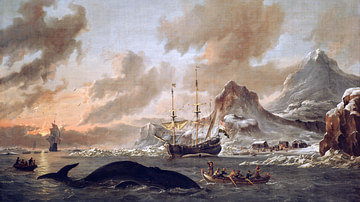
Image
Dutch Whalers off Spitsbergen
Dutch whalers off Spitsbergen, oil on canvas by Abraham Storck, c. 1690.
Collectie Het Scheepvaartmuseum, Amsterdam.
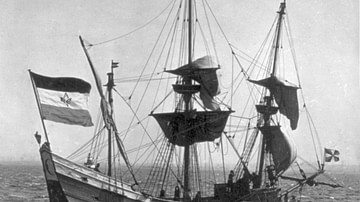
Image
Replica of the Dutch Vessel Halve Maen
Replica of the Dutch Halve Maen ("Half Moon"), which English navigator Henry Hudson (c. 1570-1611) captained on his third voyage in 1609 in search of a northwest passage. Photographic print by Stereo-Travel Co., c. 1909. Library of Congress...
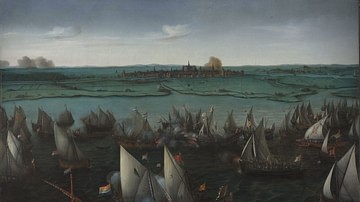
Image
Battle between Dutch and Spanish Ships on the Haarlemmermeer, 26 May 1573
Battle between Dutch and Spanish ships on the Haarlemmermeer, 26 May 1573, oil on canvas by Hendrik Cornelisz Vroom, c. 1629.
Rijksmuseum, Amsterdam.
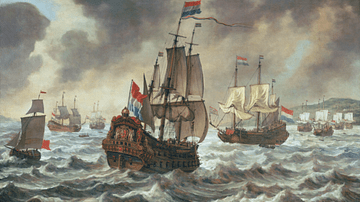
Image
Dutch Ships at the Battle of the Downs
A 17th-century painting by Reinier Nooms showing Dutch and Spanish ships fighting at the Battle of the Downs in the English Channel in 1639. (National Maritime Museum, Greenwich)

Video
Why Did the Dutch Give Up New York?
New York is one of the most influential cities in the world; economically, culturally and diplomatically it is a powerhouse. It’s population also largely speaks English, a legacy America has from it’s past as a British colony. But the English...

Definition
French Revolutionary Wars
The French Revolutionary Wars (1792-1802) were a series of conflicts that arose from the tensions surrounding the French Revolution (1789-1799). The wars were fought between Revolutionary France and several European powers, most notably Austria...
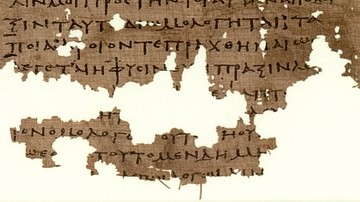
Image
Plato's Republic in ancient Greek
Papyrus Oxyrhynchus fragment of Plato's dialogue of Republic in ancient Greek.
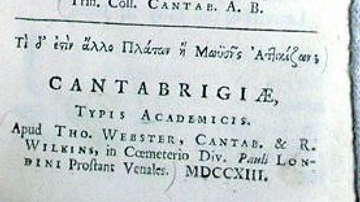
Image
Plato's Republic
The Latin Edition cover of Plato's dialogue of Republic, 1713